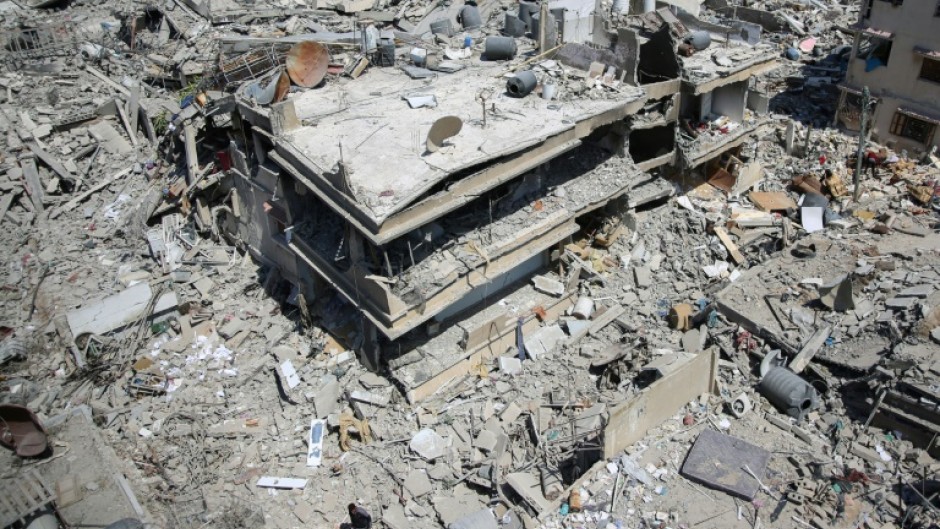GAZA - The UN Human Rights Council on Friday demanded a halt in all arms sales to Israel, highlighting warnings of "genocide" in its war in Gaza, which has killed more than 33,000 people.
The resolution -- which passed with 28 of the council's 47 member states voting in favour, six opposed and 13 abstaining -- marked the first time the United Nations' top rights body has taken a position on the bloodiest-ever war in the besieged Palestinian territory.
Meirav Eilon Shahar, Israel's ambassador to the UN in Geneva, denounced the resolution as "a stain for the Human Rights Council and for the UN as a whole".
The strongly worded text called on countries to "cease the sale, transfer and diversion of arms, munitions and other military equipment to Israel... to prevent further violations of international humanitarian law and violations and abuses of human rights".
It noted that the International Court of Justice ruled in January "that there is a plausible risk of genocide" in Gaza.
Friday's resolution, which was brought forward by Pakistan on behalf of all Organisation of Islamic Cooperation (OIC) member states except Albania, also called for "an immediate ceasefire" and "for immediate emergency humanitarian access and assistance".
- 'Stop this genocide' -
"We need you all to wake up and stop this genocide, a genocide televised around the world," Palestinian ambassador Ibrahim Mohammad Khraishi told the council before the vote.
South African ambassador Mxolisi Nkosi also said it was time for the council to act, lamenting that "our silence has been truly deafening".
"We can no longer choose to apply a parallel system of international law to Israel, nor can we be complicit in facilitating its actions," he said.
Shahar meanwhile told council members that "a vote yes is a vote for Hamas. A vote for ignoring the slaughter and rape of my people... A vote for undermining Israel's right to defend itself".
The United States, Israel's key ally, heeded its call to vote no, as did Germany, Argentina, Bulgaria, Malawi and Paraguay.
US ambassador Michele Taylor nonetheless voiced unusually strong criticism of Israel, saying it "has not done enough to mitigate civilian harm".
But she said Washington could not support the text because of its "many problematic elements", including failing to specifically condemn Hamas and its 7 October attacks.
Friday's vote came after the UN Security Council in New York last week also passed a resolution calling for a ceasefire, thanks to an abstention from Washington.
Since 7 October, Israel's relentless military assault has killed at least 33,091 people, mostly women and children, according to the health ministry in Gaza.
- Hamas not mentioned -
While the rights council resolution did not name Hamas, it did condemn the firing of rockets at Israeli civilian areas and demanded "the immediate release of all remaining hostages".
But the main focus was on Israel, with the text demanding that it end its occupation of all Palestinian territories, lift its blockade of Gaza, and end "all other forms of collective punishment".
The text also expressed "grave concern at statements by Israeli officials amounting to incitement to genocide" and urged countries to "prevent the continued forcible transfer of Palestinians within and from Gaza".
It warned in particular "against any large-scale military operations in the city of Rafah" in the south of the densely populated Gaza Strip, where well over one million civilians are sheltering.
The resolution also condemned "the use of starvation of civilians as a method of warfare in Gaza", where the UN has warned that famine is looming.
Two other resolutions targeting Israel also overwhelmingly passed at the rights council Friday.
One demanded a halt to Israeli settlements, calling on countries to do more to counter settler violence against Palestinians, including through sanctions, and on businesses to terminate activities in or with the settlements.
The other deplored Israel's occupation of the Syrian Golan Heights and its "settlement policies and practices" there, in violation of the rights of Syrian inhabitants.
By Nina Larson

